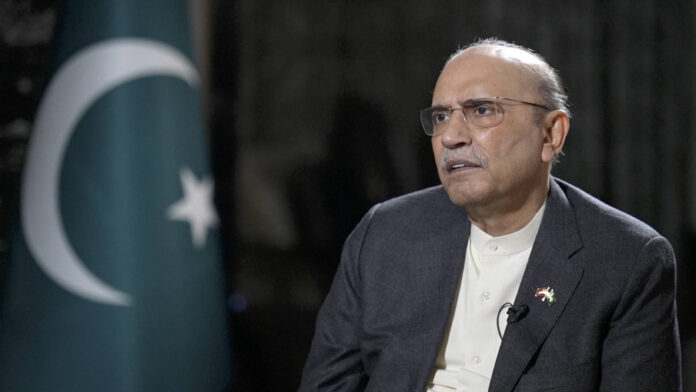President Asif Ali Zardari’s recent trip to China has produced major breakthroughs in defence, energy, and economic cooperation, with six agreements signed across diverse sectors, Pakistan Peoples Party (PPP) leader Senator Saleem Mandviwala said Friday at a press conference. Presidential spokesperson Murtaza Solangi also joined him in the briefing.
Among the most notable outcomes was a Memorandum of Understanding (MoU) to establish a Coal Gasification and Fertilizer Plant in Thar, Sindh, the first project to utilize Thar coal. The initiative is expected to both strengthen Pakistan’s energy mix and support its agriculture sector. Additional agreements focused on modernizing the livestock industry, constructing a textile industrial park, supplying and servicing fire trucks and emergency equipment, and launching waste and tyre recycling in Karachi.
Mandviwala highlighted that President Zardari also toured China’s high-speed rail system and voiced his wish to see similar technology introduced in Pakistan. On defence cooperation, he termed the president’s visit to the Aviation Industry Corporation of China (AVIC) a milestone, making Zardari the first foreign head of state to be invited to the complex. The president was briefed on China’s aerospace advancements including the J-10 fighter jet, JF-17 Thunder co-production, J-20 stealth aircraft, UAV technologies, and multi-domain command systems. “This visit could pave the way for future agreements for the procurement of advanced defence technologies from China,” Mandviwala added.
Equally historic was Zardari’s stop in Kashgar, making him the first Pakistani head of state to visit the city. “The visit came at the invitation of the Chinese government,” Mandviwala underlined. Solangi noted the symbolic importance of the Chinese Ambassador to Pakistan Jiang Zaidong accompanying Zardari throughout the trip on Beijing’s instructions, calling it a reflection of the depth of bilateral ties.
The spokesperson stressed that while the president’s first official visit to China earlier this year included meetings with President Xi Jinping and top leadership, this second tour deliberately prioritized provincial-level engagement. “The President visited Shanghai, Urumqi, Kashgar, and Sichuan, covering a broad spectrum of sectors such as agriculture, public health, biotechnology, food security, transportation, and education,” Solangi said.
Mandviwala emphasized that the agreements were not limited to Sindh but intended to benefit the entire country. On the China-Pakistan Economic Corridor (CPEC), he confirmed that discussions were held to expand and reinvigorate the project. Responding to a question, he added that Chinese leadership also expressed satisfaction over Pakistan’s operational success in “Operation Bunyan um-Marsoos,” particularly the effective use of Chinese-made aircraft.
Both Solangi and Mandviwala concluded that President Zardari’s latest visit builds on the foundation of his earlier tenure (2008–2013) and now cements Pakistan-China relations as comprehensive and strategic.




